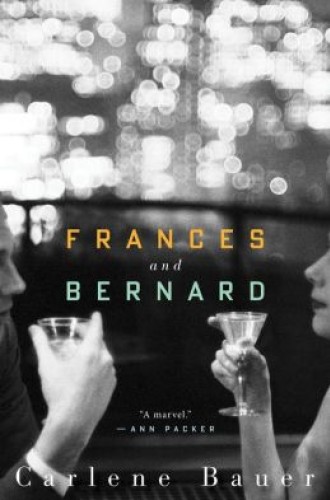Faith as a romance
Read Frykholm's interview with Bauer.
First-time novelist Carlene Bauer begins an imagined correspondence between two midcentury Catholic writers with a question about the Holy Spirit.
Bernard, a fiery and impulsive poet, writes in his opening letter to Frances, a more reserved and private fiction writer: “Who is the Holy Spirit to you?”
Frances demurs, “The Holy Spirit! Bernard, you waste no time. I believe he is grace and wisdom.” She does not return the question.
Bernard is unperturbed by her reticence. He takes another step toward her: “I don’t know what the Holy Spirit is or does. I think this is because I have come to Catholicism late and have felt hesitant to penetrate this mystery. . . . Is he grace and wisdom? How do you know?”
In creating the characters for Frances and Bernard, Bauer drew extensively on the letters of Flannery O’Connor and Robert Lowell, but the book does not precisely follow the trajectory of either of their lives. Instead, writing in an epistolary mode, Bauer illuminates interior dilemmas, asks theological questions, and explores the dimensions of a life of faith and of romantic love.
Read our latest issue or browse back issues.
Frances’s religious faith is more deeply rooted than Bernard’s—both because she comes from a Catholic family and has nearly always had a religious sensibility and because of her temperament: she holds the world at a remove and ponders it at greater length. When she tells Bernard of her coming to faith, she pits the discovery of her own voice against her Catholic schoolteachers’ attempts to silence her. In other words, she holds her faith in a tension that is productive for her work. She never explains why she is a believer, and her story of coming to faith isn’t convincing. If anything, faith functions for Frances as a deep, silent well, and she doesn’t much care for Bernard poking a stick into it. Bernard’s interpretation of her reticence: “She may always think harder than she loves.”
Bernard, on the other hand, believes that his faith is meant to save him. He has always understood his faith through his attraction to women, which has gotten him expelled from one religious community after another. But his lack of personal discipline leads him to believe that Catholicism might be his path to order and coherence. He can use it—along with the women in his life—to discipline his otherwise erratic art.
But Frances sees through him. When he sends her the proofs of his book of poems, she writes to her friend Claire, “Although Christ is all over these poems, hidden in historical figures, alluded to, quoted, and then expanded on as a way to reach Bernard’s impressive imagery, Christ is not really in these poems. He is too on the surface of them to be actually moving within them.”
Frances and Bernard discuss faith frankly, attempt going to church together, talk about prayer and doubt and theology in rich terms, but somehow the reader knows, without anything being said, that this book does not have a pietistic bone in its body. Faith is an interlocutor. It is perhaps a ground for the two writers to walk on together. But it does not make any human dilemma easier to solve.
As Bernard falls in love with Frances and gradually compels her to love him, he also grows steadily more mentally ill. During his first manic episode, he comes into a church where Frances is praying. He announces loudly, “Today is the day of Frances Reardon, orphaned child of Brigid’s isle, patron saint of frigid knees. Of unmet wishes, of idées fixes, of withering eyes, of docile guise.” Soon after, he begins to throw prayer books at other parishioners.
Frances writes in the aftermath:
Maybe you should leave off the Augustine and turn again to Kierkegaard and Dostoevsky. Those two writers I think come closest to giving us the best modern articulation of what it means to struggle with what we have been charged with. They are poets of the agony that is doubt and of the burden that is conscience.
Despite the richness of its theological content—the challenges, doubts and agonies of faith—the book seeks secular solutions to religious struggles. Faith is more of an obstacle for both Bernard and Frances than it is a way forward. Romantic love and writerly ambition provide a greater sense of redemption than faith, which seems only to stir things up, create unanswerable dilemmas and cause the characters to live too much in their imaginations and not enough on the ground.
Both Bernard and Frances struggle with Simone Weil’s statement, “To accept that [people] are other than the creatures of our imagination is to imitate the renunciation of God. I am also other than what I imagine myself to be. To know this is forgiveness.” Frances and Bernard create each other as pieces of their imaginations. They also create God as pieces of their imaginations and struggle when their visions cannot meet their realities. They eventually, but perhaps not ultimately, take refuge in the more tangible presence of romantic partners and writing prizes. But the book is delightful for the questions it raises and for the perfectly rendered voices of its characters. We listen in on an intimate conversation that has implications far beyond its own boundaries.







